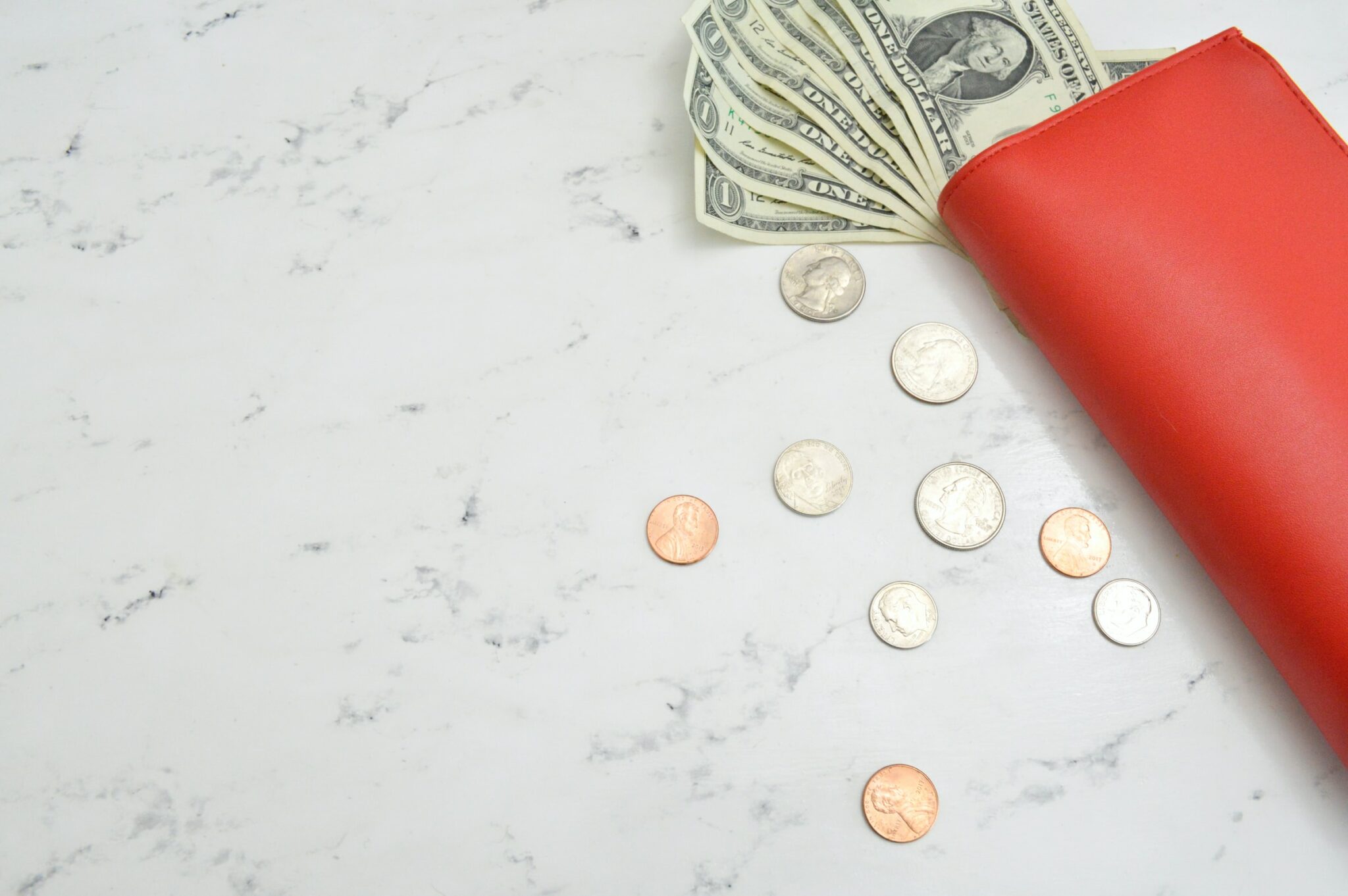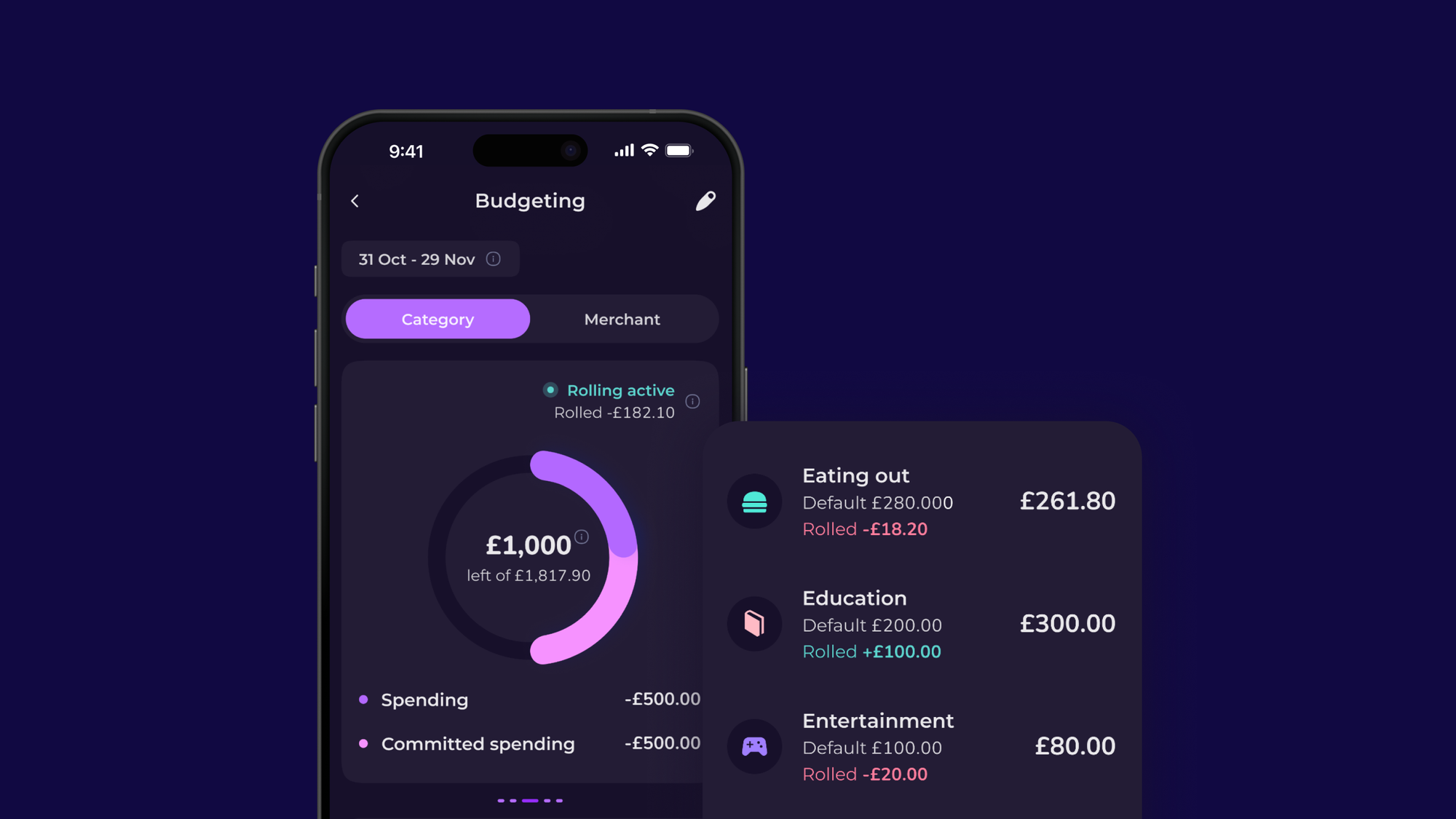FEATURED ARTICLE
5 Steps To Creating The Perfect Payday Routine

Rebekah May
August 25, 2020 •4 min read
TABLE OF CONTENTS
What Is A Payday Routine?
What Does A Payday Routine Look Like?
What Are The Benefits Of Having A Payday Routine?
Summary
I’m probably not alone when I say that the thought of payday excites me a little... After a month of working hard, payday is definitely a welcome treat.
But, with that mentality also comes the temptation to splurge all your hard-earned cash in the first few days.
How many of you have checked your accounts on payday, and been tempted to hit the shops? Or head out for a fancy dinner? Feeling that payday excitement is all well and good until you’re trying to figure out how you can live off £13 for the rest of the month! #guilty
If this sounds like you, creating a solid payday routine might help make sure you’re making the most of each paycheck.
What Is A Payday Routine?
A payday routine is a set of actions that you complete every time payday rolls around.
People tend to be more productive when there is a routine in place, so having a payday routine is a solid strategy to gaining greater control over your finances.
Following a set routine like this, gives you the opportunity to review your finances on a regular basis. And means you’re less likely to splurge the money as soon as it hits your account.
What Does A Payday Routine Look Like?
As with all personal finance, there is no one-size-fits all approach. You should manage your money in a way that suits you the most. Here is just one example of the actions you could complete each payday.
1. Check your pay is correct
Before you start moving money around, check that the amount you have been paid is what you expected. Mistakes are easily made, and you don’t want to be missing out on money that is rightfully yours. This is especially important if you’re in a job that pays hourly, or has the option to receive overtime.
Likewise, it’s also important to check that you haven’t been overpaid. There would be nothing worse than spending money, that you then had to return.
Other things that are worth checking on your payslip are variable deductions, like tax and National Insurance amounts. Your pension contribution. And any student loan repayments. Spot check the amounts vs a previous payslip, and if you notice any changes investigate further.
2. Move money into a savings account
Once you’re sure that your pay is correct, you can think about moving money into a savings account. You may have heard the term “pay yourself first”? Well, paying yourself first is often described as one of the most crucial actions when it comes to building wealth.
With Emma, you can open a Save Pot and start earning interest on your savings!
As soon as you’ve been paid, move a set amount of money into a Pot. Having a separate account for your savings is known to reduce the temptation to spend that money. Out of sight, out of mind.
3. Move money into a bills account
Next, you’re going to want to sort out your fixed expenses. Fixed expenses include things like rent, bills, memberships, and subscriptions.
At the start of each month, work out how much money you’re going to need to cover the costs of all your fixed expenses. Move this amount of money into a separate account, and set up automatic payments to pay these off.
Doing this at the start of the month can really help to reduce stress when it comes to money. You’ll know that whatever you spend day-to-day won’t leave you short on paying for the important things, like your bills.
4. Scan your account for unexpected charges
It’s good practice to spend a few minutes each month checking over your account for any unexpected charges.
This could be checking your subscriptions to see if the amount charged is correct, or making sure you recognise all your transactions.
If you spot any transactions that you don’t think are correct, make sure you raise this with your bank as soon as possible.
5. Review your budget for the month
Lastly, you’ll want to review your budget for the month. Look at how much money you have left after you’ve moved money to your savings account, and your separate bills account. This is now the money you can spend on everyday items like transport, groceries, or eating out.
You can use Emma to set a total budget, or go one step further and set individual budgets by category. With careful planning, you’ll be able to see where you’re spending your money, and refrain from dipping into your savings account!
See also: How To Budget Using The Emma App
What Are The Benefits Of Having A Payday Routine?
There are many benefits to setting a payday routine.
- For one, your money is more likely to last throughout the month.
- You’ll face less money anxiety when it comes to paying your bills because you can be confident that you’ve set money aside for them.
- You’re more likely to hit some bigger savings goals because you’ll be paying yourself first.
- And ultimately, this will lead to you having greater control over your financial situation.
Summary
Setting a payday routine is just one thing you can do to improve your finances. It may take a while to get into this habit, but it will be worthwhile in the end!
Does your payday routine differ from the above? Let us know on Facebook, Twitter, Instagram, or on the Emma Community.
Emma is a money management app that connects all your bank accounts to track your monthly spending and subscriptions. Emma will help you visualise and take control of your finances. Make sure you aren’t overspending and show you practical steps to start budgeting effectively.
You may also like
Check out these related blog posts for more tips
© 2025 Emma Technologies Ltd. All Rights Reserved.
Emma is registered and incorporated in England and Wales.
Emma Technologies Ltd is an appointed representative of RiskSave Technologies Ltd, which is authorised and regulated by the Financial Conduct Authority (FRN 775330).
Payment services (Non MIFID or Deposit related products) for Emma Technologies Ltd are provided by The Currency Cloud Limited. Registered in England No. 06323311. Registered Office: Stewardship Building 1st Floor, 12 Steward Street London E1 6FQ. The Currency Cloud Limited is authorised by the Financial Conduct Authority under the Electronic Money Regulations 2011 for the issuing of electronic money (FRN: 900199). For more detail on how your money is protected please see here. You can also find Currency Cloud's Terms of Use here.
Emma Technologies is an Introducer Appointed Representative of Quint Group Limited and not a lender. Quint Group Limited is authorised and regulated by the Financial Conduct Authority (Firm Reference Number 669450). Monevo Limited is an Appointed Representative of TransUnion International UK Limited. TransUnion is authorised and regulated by the Financial Conduct Authority (Firm Reference Number 737740). Emma Technologies introduces customers first to Quint Group Limited, as a licensed credit broker, who then refers on to Monevo Limited.
Emma is registered with the Financial Conduct Authority under the Payment Services Regulations 2017 for the provision of payment services.
Financial Conduct Authority Reg Nr: 794952.
Company Registration Number: 10578464.
Data Protection Registration Number: ZA241546.
All testimonials, reviews, opinions or case studies presented on our website may not be indicative of all customers. Results may vary and customers agree to proceed at their own risk.
Resources: Cancel subscriptions, Cashback offers, Who charged me, Rent Reporting, Budgeting, Investment universe, Emma vs Moneyhub.
Featured cashback offers: Samsung, SimplyCook, NordVPN, Audible, M&S Homeware.









